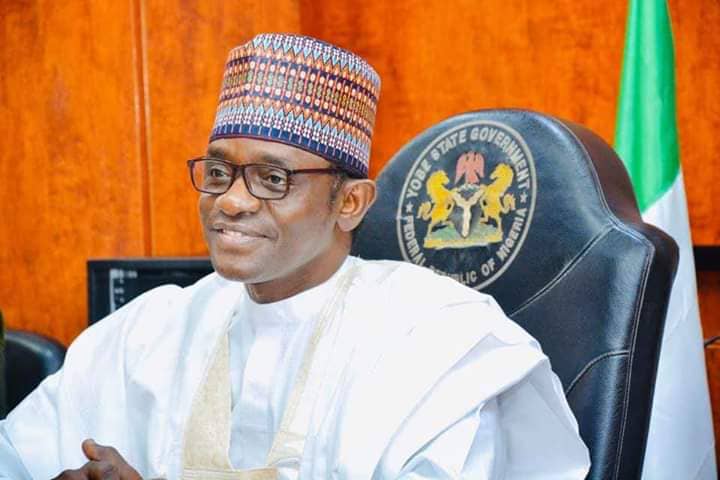Governor of Yobe State Mai Mala Buni will have his hands really full next week when he plays host to two other state governors from Nigeria, one regional governor from Niger Republic, two regional governors from Cameroon and two more regional governors from Chad. They will be converging for the 5th Edition of the Lake Chad Basin [LCB] Governors’ Forum for Regional Cooperation on Stabilization, Peacebuilding and Sustainable Development, which will hold in Maiduguri from Wednesday, January 29th to Saturday, the 31st.
Attending the meeting, apart from host governor Buni, are the governors of Borno and Adamawa States, Nigeria; Diffa region in Niger Republic; Lac and Hadjer-Lamis Provinces in Chad; as well as governors of Cameroon’s Far North and North Regions. The theme of the gathering is Rebuilding the Lake Chad Basin: Consolidating Gains, Commitment to Peace, Cross-Border Cooperation, Security and Sustainable Development for a Resilient Community.
What is the purpose of this cross-country coming together? Boko Haram, is the long and short of it. Lake Chad Basin was once one of the richest and most stable places in Africa, with enormous riches in agriculture and fisheries. Boko Haram altered the picture with its debut in 2009.
For fifteen years since then, Lake Chad Basin region has been impacted by the Boko Haram conflict, further complicated by other factors such as extreme poverty, underdevelopment, climate change and other conflicts. It resulted in massive internal and cross-border displacement, destruction of the social fabric and property, human rights abuses, disrupted public services and limited capacities of government institutions. As of August 2024, there were an estimated 6 million refugees, returnees and internally displaced people in the four countries around the basin. Nigeria has the Lion’s Share of 74%. Cameroon has 13%; Niger Republic has 9% while Chad has 5%.
Since 2015, a massive military effort by the four countries, coordinated by the Multinational Joint Task Force [MNJTF] has greatly degraded Boko Haram and enabled the restoration of relative peace and resettlement of people in many areas of the Chad Basin. Following these successes, Lake Chad Basin Commission [LCBC] developed the Regional Strategy for Stabilisation, Recovery and Resilience of the Boko Haram affected areas of the Lake Chad Basin Region, RS SRR. The strategy, launched in 2018, was validated by the Lake Chad Basin Council of Ministers on 30 August 2018 and endorsed by the AU Peace and Security Council (PSC) on 5 December 2018.
RS SRR provides a framework for addressing the region’s complex and urgent security, humanitarian and development challenges. It recognises the need for a comprehensive, multi-sectoral, coordinated set of sub-national, national and cross-border efforts to build long-lasting stability and resilience across the Lake Chad Basin (LCB) Region. It is localised through Territorial Action Plans [TAPs] in each of the eight territories most affected by Boko Haram in the LCB region.
The Governors’ Forum, which is holding its fifth meeting next week, is an integral part of the RS SRR. It is its most important political platform for cross-border and regional interaction with various stakeholders. Over the years, the Forum has established itself as a platform for stakeholder exchanges and the main platform for political dialogue in the LCB region.
Six years into RS SRR’s implementation, several pockets of stabilisation have been achieved within the region, as military efforts have been complimented with the rebuilding of communities and restoration of social order. People who have experienced multiple displacement over several years have returned to their homes. Markets are reopening, thereby facilitating trade and economic growth. In addition, social infrastructure including schools, clinics and permanent housing have been rehabilitated or reconstructed. Exits from Boko Haram controlled areas necessitated the acceleration of reconciliation and rehabilitation initiatives in the region. These factors contribute to laying the foundation for social cohesion and sustainable peace.
However, Boko Haram factions continue to wreak havoc through sporadic attacks on communities. The alternating use of crime and terror by these groups, activities of other criminal actors, the farmer-herder crisis in the region, coupled with increasingly adverse effects of climate change and rapid population growth, further exacerbate the security situation.
RS SRR has therefore been reviewed and updated to reflect the current situation and priorities of the governments and communities. The Governors’ Forum meeting next week will provide the best opportunity for all stakeholders, including Governors, state/national governments of the four member states, regional economic communities, local and national CSOs, UN entities, national and international NGOs, national and international research and education institutions, international governments and donor partners, and other financial and technical partners to interrogate and lay options for sustainable peace and development in the region.
As the Chief Host, Governor Mai Mala Buni and all his colleagues from four countries will have their hands full in working out the means to secure, restore and stabilise the Lake Chad Basin, which has suffered one of the worst episodes of violence anywhere in Africa. They deserve every support and encouragement.









